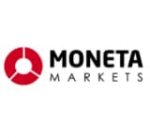
The forex markets are the largest asset class in terms of daily turnover. According to the preliminary 2022 results of the Triennial Central Bank Survey conducted by the Bank for International Settlements, the daily turnover in the FX markets, including activity in forex and OTC derivatives, averaged a record $7.5 trillion in April 2022. That number is up from $6.6 trillion in 2019, driven by volumes in FX spot, forwards, and swaps.
There are hundreds of brokers operating across regions, offering a wide array of forex instruments to choose from, all within the ambit of the law. On the other hand, some firms pretend to be genuine brokers, but they’re trying to make a quick buck at the expense of unsuspecting individuals by luring them with guaranteed profits and pyramid schemes that are eventually bound to fail.
In this article, we go into the details of pyramid schemes, how they are disguised as genuine offerings, how to spot red flags in brokers providing them, and how to identify safe forex brokers.
What Is a Pyramid Scheme?
When you’re trading in the largest global financial markets, there are bound to be some unscrupulous elements posing as authentic forex brokers to scam individuals by disguising Pyramid or Ponzi schemes as MLMs or other honest offerings.
A Pyramid or a Ponzi Scheme is a marketing pitch employed by forex brokers to lure clients by promising improbable returns in the forex markets, which are unsustainable in the long run. These offerings are not limited to the forex markets but can be found across asset classes. In some instances, brokers offering pyramid schemes also disguise them as multi-level marketing (MLM) programmes, but they’re actually financing the income of their earlier clients from subsequent users.
While there are some similarities between MLM and Pyramid schemes, the primary difference is MLM is a marketing strategy used by companies to sell their products through distributors, offering multiple levels of commissions, whereas those operating pyramid schemes do not sell any product. Instead, they pay commissions to distributors to enrol others into trading forex and other financial instruments by promising massive returns.
Pyramid structures of fraudulent brokers are designed in such a way that distributors are paid for bringing in new clients, but commissions are dispersed from those at the top of the pyramid to the ones at the bottom. However, when there are no fresh recruits, the scheme falls apart. MLM is legal in most countries, while Pyramid Schemes are not.
Is Forex Trading a Pyramid Scheme?
The massive volumes and ample liquidity drive regulated brokers to offer affiliate or partnership programmes in specific countries. These programmes are designed to provide business opportunities to traders and primarily enhance an individual’s potential income outside trading, which are very different from pyramid schemes. So, if you have good marketing skills and are happy with the services your broker provides, sign up for the affiliate program, introduce well-wishers and other traders struggling with their FX brokers and earn additional income or commissions from the trades they generate.

However, as an affiliate or partner, your primary duty is to inform clients you introduce about the risks associated with forex trading. While there’s no doubt that you can earn significant returns from the forex market, it is also true that you can lose all the money invested if you’re not careful.
The above example is a classic case of a regulated forex broker offering an open affiliate program to encourage traders to earn additional income through revenue sharing. However, some forex brokers offer multi-tiered programs or pyramid schemes designed so that profits are paid from the newly acquired deposits and clients, down the line, finance the income of the previous users. Once the forex broker fails to sign-up new clients, the pyramid collapses, and the broker gets to keep all the funds, and in many instances, they shut down operations and restart as a new firm.
So, while forex trading is a genuine activity, some brokers also offer pyramid schemes, and it is up to you to distinguish between safe and fraudulent forex brokers.
Related Articles
- The biggest ICO scams
- Top tips for avoiding financial fraud
- How to avoid scams on MetaTrader 4 and 5
How to Spot a Pyramid Scheme?
While most forex brokers operate within the laws and regulations prescribed by the country’s financial markets regulator, some bad actors pretend to be genuine but involve in fraudulent activities on their unsuspecting partners and clients. So, if you’re new to the forex markets, here are some red flags to watch out for to ensure your broker is not offering a pyramid scheme.
For starters, don’t be fooled by brokers promising sky-high returns on your investments with zero to low risk and the opportunity to earn bonuses from the clients you introduce. You must understand that while forex markets operate 24/5 and give investors ample trading opportunities, there is a substantial risk.
Next, pyramid schemes offered by forex brokers are generally multi-tiered programs that come with solid bonuses not just from the clients you introduce but from down the chain, which is a clear-cut scam. The first question you should ask yourself when a broker provides such a lucrative offer is, where is the money coming from? And the answer is it’s coming out of your and your client’s deposits.
Safe Forex Brokers
Before registering with a forex broker, it is imperative to identify the difference between the ones that are genuine and scammers to avoid losing your hard-earned money. If you’re a fresher, you might find it difficult to differentiate between a realistic risk-reward ratio in the forex markets and an unrealistic one. One way to avoid forex scammers is by signing up with a regulated broker under a competent regulatory authority.
We have conducted exhaustive research on hundreds of forex brokers, and we recommend you check them out.
| Broker | Features | Min Deposit | EURUSD Spread | ||
|---|---|---|---|---|---|
 Your capital is at risk
US Clients: No Regulated : Yes Your capital is at risk
US Clients: No Regulated : Yes
|
– Regulated by FCA, FSCA, CMA and FSC |
$200 | ECN 0.1, Standard 1.6 | ||
 Your capital is at risk
US Clients: No Regulated : Yes Your capital is at risk
US Clients: No Regulated : Yes
|
– 40% New Member Bonus
|
$100 | Fixed |
Sign
Up
Europe* CFDs are complex instruments and come with a high risk of losing money rapidly due to leverage. 79% of retail investor accounts lose money when trading CFDs with this provider. You should consider whether you understand how CFDs work and whether you can afford to take the high risk of losing your money.
|
|
 Between 74-89 % of retail investor accounts lose money when trading CFDs
US Clients: No Regulated : Yes Between 74-89 % of retail investor accounts lose money when trading CFDs
US Clients: No Regulated : Yes
|
|
$200 | NDD 0.09 / Standard 0.69 |
Sign
Up
Between 74-89 % of retail investor accounts lose money when trading CFDs
|
|
 * 82% of retail investor accounts lose money when trading CFDs with this provider. You should consider whether you can afford to take the high risk of losing your money
US Clients: No Regulated : Yes * 82% of retail investor accounts lose money when trading CFDs with this provider. You should consider whether you can afford to take the high risk of losing your money
US Clients: No Regulated : Yes
|
|
100GBP/AUD/EUR/USD | variable |
Sign
Up
* 82% of retail investor accounts lose money when trading CFDs with this provider. You should consider whether you can afford to take the high risk of losing your money
|
|
 Your capital is at risk
US Clients: No Regulated : Yes Your capital is at risk
US Clients: No Regulated : Yes
|
– Flexible leverage up to 500:1 |
$200 | From 0.1 | ||
 Your capital is at risk
US Clients: No Regulated : Yes Your capital is at risk
US Clients: No Regulated : Yes
|
$50 | 0.02 | |||
 51% of retail CFD accounts lose money
US Clients: No Regulated : Yes 51% of retail CFD accounts lose money
US Clients: No Regulated : Yes
|
|
$50 (varying by Country) | from 1 |
Sign
Up
*Don’t invest unless you’re prepared to lose all the money you invest. This is a high-risk investment and you should not expect to be protected if something goes wrong. Take 2 mins to learn more
|
|
 Your capital is at risk
US Clients: No Regulated : Yes Your capital is at risk
US Clients: No Regulated : Yes
|
|
$5 | From 0.0 pips | ||
 Your capital is at risk
US Clients: No Regulated : Yes Your capital is at risk
US Clients: No Regulated : Yes
|
– CySEC, FCA, FSCA, SCB Regulated |
$100 | |||
|
|
|||||
Summary
As mentioned, forex markets are open 24/5 and epitomise the largest traded asset class, with ample opportunities to earn decent profits. However, if you’re not careful about the broker you sign up with and end up in a fraudulent Pyramid or Ponzi scheme due to the lure of money, you can lose your entire deposit in the blink of an eye. So, before you sign-up, go through the documents provided by the forex broker.
Financial institutions operating in any country must be registered by a competent authority and follow the laws. For instance, if a forex broker wishes to operate in the UK, it should be authorised by the Financial Conduct Authority (FCA), a financial regulatory body in the UK. So, before you deposit funds with a UK-based forex broker, you should ensure that the FCA regulates them.
Likewise, governments in every country regulate forex brokers. You can confirm this by demanding the registration documents before you sign-up or introduce clients to the broker. While millions of investors worldwide are engaged in forex trading without any issues, watch out for fraudulent brokers, who generally target inexperienced investors looking for massive profits in a short period.
Also, remember that fraudsters benefit from your greed. So, for you not to be caught up in a scam, it’s vital to understand the realistic risk-reward ratio in these markets, and if it does not suit you, it’s better not to invest than lose all your money. Do not fund your forex trading account until you’re confident that the broker is well-regulated, has no pending cases, and has no negative reviews.